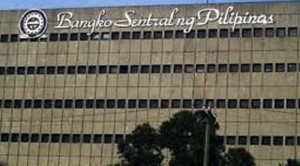Traders’ sentiment deteriorates in Q1

The business confidence index for the current quarter stood at +37.8 percent, the weakest reading in 10 quarters, the Bangko Sentral ng Pilipinas reported Friday as it released the results of the latest Business Expectation Survey.
The latest index was weaker compared with the +52.3 percent for the fourth quarter of 2013 and the +41.5 percent for the first quarter of 2013.
BSP Assistant Governor Ma. Cyd Tuaño Amador said the weaker sentiment of the business sector was expected, explaining that the survey was conducted at a time when concerns were high about how affected areas would recover from Supertyphoon “Yolanda.”
The natural calamity, reported to be one of the strongest typhoons to hit land, devastated central Philippines in November.
The latest quarterly survey on business sentiment was conducted by the BSP from Jan. 9 to Feb. 20 among 1,525 firms across the country. The survey had a response rate of 83.1 percent.
“The adverse effects of ‘Yolanda,’ together with the increase in oil prices and volatility of the financial market, had a toll on the morale of businesses,” Amador said in a press briefing.
Amador, however, stressed that the positive confidence index for the first quarter meant that optimistic businesses still outnumbered the pessimistic ones.
The deterioration of the index likewise came amid an uptick in inflation, which hit a two-year high of 4.2 percent in January.
The acceleration of inflation was blamed largely on disruptions to supply of food and other commodities resulting from the natural calamity. Inflation is expected to hover in the 4-percent territory this year compared with the average 3 percent last year.
The drop in the business confidence index also happened as financial markets of emerging economies reeled from an outflow of foreign portfolio capital. The outflow was attributed to the tapering of the stimulus program by the US Federal Reserve amid expectations of an improving American economy.
According to Teresita Deveza, deputy director of the BSP’s economic statistics department, the decline in the business sentiment index was partly due to the seasonality factor. Businesses tend to experience lower sales in the first quarter after a spike in consumer spending during the Christmas season, she said in the same press briefing.
